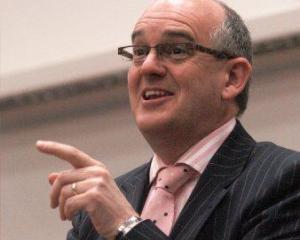An allegation of "unhelpful behind-the-scenes involvement" by Health Minister Tony Ryall in the long-running senior doctors' pay talks has been made by the doctors' union.
However, Mr Ryall's brief statement on the issue said he had been kept appropriately informed over the progress of negotiations.
"Ministers are not a party to the bargaining between the parties."
In its bulletin on the provisional agreement on the specialists and medical and dental officers' multi-employer collective agreement, the Association of Salaried Medical Specialists suggests this allegation came from district health board sources.
The association describes the negotiations, which have lasted almost two years, as becoming "toxic" in recent months.
It says that it has not had a problem with the two negotiating teams it has had to work with.
"The problem has been those wielding influence away from the negotiating table".
The doctors have until December 15 to vote on whether to accept the proposal which would see members get an average increase of 3% to 3.3%, although the range of increases is from 2.8% to 10.6% for specialists and 3.1% a to 12.4% for medical and dental officers.
How big each person's increase is depends on where they are on the salary scale, which will be shortened under the new proposals. The 15 steps on both the specialists' and the medical and dental officers' scale would be reduced to 12 , giving those on the bottom step the largest rises.
This means that specialists on the first step of $131,168 would get an increase of about $18,500 taking them to almost $150,000 and the medical and dental officers on $95,341 would have a pay rise of about $16,400 for a basic 40-hour week.
Association president Jeff Brown said it was believed the changes would encourage more to start their specialist career in New Zealand.
However, the bulletin says it is unlikely to have any impact on recruiting internationally and would raise and perpetuate issues of equity and fairness over relativity on the specialist scale for those in the middle of the scale.
It would also increase the number of members on the top of the specialist scale "with nowhere further to go".
The association suggests many of these on this rate will be attracted to Australia or elsewhere.
The top step for specialists will rise 3.3% to $206,000 with the top medical and dental officers receiving a 3.6% increase to take them to $162,250.
Roughly a third of all of those affected by the MECA are in the top category, a much greater proportion than for any of the other steps.
Mr Brown said the offer did not "significantly invest in retention, but for a 14-month term we believe it is the best deal we can deliver in the current fiscal and post-earthquake environment".
The association's national executive is recommending members accept the deal which Mr Brown said would allow the executive to continue to pursue workforce and leadership issues.
• The boards' earlier offer of a 12-month agreement from July with a salary increase of 1.7%, and removal of the first four steps of the salary scale, was rejected in May.
No response had been received by the district health boards yesterday to questions on Mr Ryall's involvement and the difference between what was offered to the senior doctors and offers to other categories of health workers.



